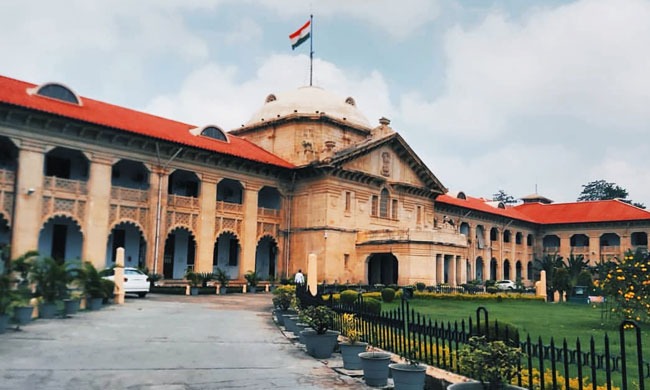
The Allahabad High Court recently held that the provisions of the Maternity Benefit Act 1961 (Act) allow a woman to get maternity benefits even after the birth of her child.
A single bench of Justice Ashutosh Srivastava observed that under the Act, a woman has the right to avail maternity leave even after the birth of child and this benefit can even be extended in a case of a legal adoption of a child of less than three months.
“The Act of 1961 was enacted to secure women’s right to pregnancy and maternity leave and to afford women with as much flexibility as possible to live an autonomous life, both as a mother and as a worker, if they so desire,” the bench stated.
The single bench was hearing a plea filed by Saroj Kumari seeking a writ of certiorari against a decision issued by the District Basic Shiksha Adhikari, Etah, denying her maternity leave on the grounds that maternity leave cannot be awarded after child birth. The order also stated that the petitioner can only apply for child care leave under the Act.
The petitioner was assigned to the Board of Basic Education, Prayagraj, as headmistress of the primary school in Heerapur, Etah district.
The petitioner gave birth to a girl child on October 15, 2022, and after being discharged from the hospital, she promptly sought for maternity leave from October 18, 2022 to April 15, 2023(for 180 days). Unfortunately, it was rejected because the annexures supporting maternity leave were missing.
On October 30, 2022, the petitioner applied for maternity leave again in the prescribed proforma, but it was denied by the District Basic Education Officer, Etah, who stated that the petitioner is not entitled to maternity leave after child birth and is only eligible for child care leave, and thus she can only apply for child care leave.
The petitioner then approached the high court.
Advocate Satyendra Chandra Tripathi, who appeared on behalf of the petitioner, stated that the 1961 Act was enacted by the parliament to regulate the employment of women in certain establishments during certain periods before and after child birth, as well as to provide maternity leave and certain other benefits.
As a result, denying the petitioner maternity leave on the grounds that the child was born and thus the petitioner is not entitled to maternity leave is illegal and erroneous.
It was also argued that child care leave is unique from maternity leave and operates in various domains, and therefore forcing the petitioner to take child care leave was completely unnecessary.
Furthermore, it was said that the respondents had stopped paying the petitioner’s wages from November and December of 2022.
Respondents, on the other side, have supported the rejection order and argued that it is without flaw.
The single bench considered the aim of the 1961 Act, which was enacted to control the employment of women in specific enterprises during specified periods before and after childbirth, as well as to provide for maternity benefits and other advantages.
The Court then looked at Section 5 of the Act, which addresses the payment of maternity benefits to a woman for the length of her actual absence beginning with the period immediately prior her delivery, the actual day of her delivery, and any period immediately following that day. The rule also specifies the maximum duration for which a woman may receive maternity benefits.
“These provisions have been made by Parliament to ensure that the absence of a woman away from the place of work occasioned by the delivery of a child does not hinder her entitlement to receive wages for that period or, for that matter, for the period during which she should be granted leave in order to look after her child after the birth takes place,” the Court observed, referring to the preamble and the provisions of the 1961 Act.
The bench emphasised that Section 5 entitles a woman to maternity leave even after the child is born.
The Court did, however, warn that maternity leave may not be granted for the full 180 days or 26 weeks.
Addressing the interpretation of the 1961 Act’s provisions, the Court held that a purposeful interpretation is essential because the grant of maternity leave is meant to support women’s continued employment.
As a result, the Court overturned the ruling of the District Basic Education Officer of Etah, who had refused to grant the petitioner maternity leave following the birth of her child.
Furthermore, the Education officer was directed to release the arrears of wages and pay the petitioner’s salary on a monthly basis as and when it became due.
Then, the bench directed the officer to issue new orders in accordance with the Act’s requirements.





